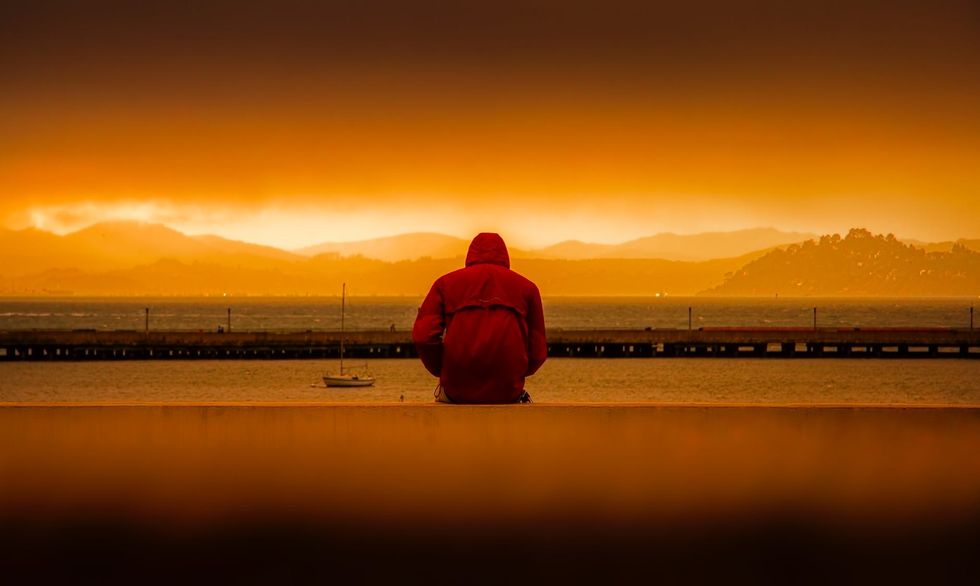"You need your nausea. You need your pain. It is a message, and we must listen to that message."
In this quote, Johann Hari revolutionized my view of depression.
In my circles, we're often told that depression is the result of a biochemical imbalance of serotonin, that we're depressed because there's something wrong with our brains, and something wrong with us.
Lost Connections is a book that delves deeply into dismantling the belief of depression as solely a neuroscience or purely psychological phenomenon, something that can only be fixed using SSRIs and antidepressants. No, it is much more than that. The subtitle for the book is "uncovering the real causes of depression -- and the unexpected solutions." Hari talks a lot about the biopsychosocial model, the approach that combines biological, psychological, and social factors into a person's mental and physical health. He gives anecdotal experiences of his experiences as a journalist walking with people suffering from depression.
Critics of Hari say that the book oversells himself, that it gives the message that it's a "totally new take on depression," and those critiques are valid. But Hari, in Lost Connections, is speaking of his own perspectives, experiences, and personal Odyssey. This is the story of one person dismantling his the false beliefs that harmed him and didn't work for him, and we should read the book based on his personal testimony and experiences. Hari himself suffered depression since he was a kid, and started taking antidepressants as a teenager. "He was told that his problems were caused by a chemical imbalance in his brain..and he learned that almost everything we have been told about depression is wrong."
I've written at length about Hari's work, an article in The Guardian that sent the clear and validating message I needed to hear at the time: depression isn't a sign that you're crazy. It's not a sign that something's wrong with you. It's a sign that your needs aren't being met, and you need to find ways to fulfill those needs.
That solution, in Lost Connections, is, unsurprisingly, connection. The causes of depression are a lack of depression, and Hari has. identified nine leading causes of depression. These include disconnection from meaning work, disconnection with meaningful values, disconnection from other people, and disconnection from meaningful trauma.
Reading this book, I will admit that I, as a reader, was tempted to think "no shit, Johann, everyone knows this from experience," but Hari's exploration into his personal anecdotes and experiences with both communities and experts convinced me to clap in applause at his excellent reporting and journalistic efforts. He ventures from a bike shop in Baltimore to an Amish community in Indiana to an uprising in a housing project in Berlin, and has helped transform our narrative and debate around addiction in necessary and compelling ways.
The language of big pharma and psychopharmacology have a monopoly over our discussion of mental illness, addiction, and depression. The message that our pain is unnatural, that it's crazy is a harmful and extremely damaging message to hold. Yes, antidepressants work for people. They save lives, but in no world should we act like they're the only solution. As Hari notes, "We need to stop trying to muffle or silence or pathologize that pain. Instead, we need to listen to it, and honor it." We need to listen to our pain so we can see the sources of where it comes from, and embark on the hard path to overcome it.
The more attention Lost Connections and the work of Johann Hari gets, the more I believe the world will be a better place. That isn't to say that Hari is right all the time, but that we will start having the discussions necessary to creating a more healthy and just society.
Hari echoes an important message I have found in my relationship with God and my faith: it is not wrong to suffer. It is not unnatural to suffer. What doesn't kill you makes you stronger, and his work has led me to be grateful and learn lessons from the ways profound suffering has impacted my life. I believe in the resurrection of Jesus Christ, and I believe that life is 10 percent about what happens, and 90 percent about how we react to it. The transfiguration of our suffering and lament into hope and joy is our personal resurrections, and that is a message that Hari has captured in Lost Connections.
During my three Easter Services that I attended, I came away with a lot of thoughts, but I came away predominantly with the internal conflict that I need to let something in my life I'm holding onto die, as Jesus Christ did on Good Friday. And I also came away with the message that I need to let something in my life resurrect, as Jesus did on Easter Sunday.
I will be lying if I said I have definitive answers to those soul-searching questions. But one thing is for damn sure: I have to let these discussions and the pursuit to love kindness and seek justice, as Micah 6:8 urges us, to go on. Hari has aided me substantially in those missions, and I believe Lost Connections will lead you into the necessary soul-searching for your life questions, too.






















